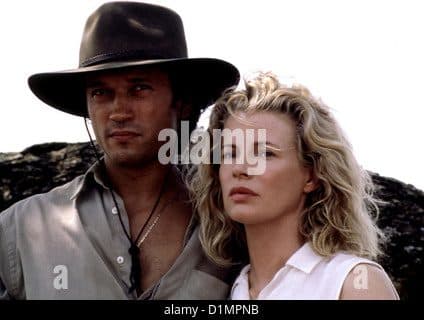Zulu Dawn: Unearthing the Real Story Behind the Battle of Isandlwana
Have you seen "Zulu"? The 1964 film shows British valor at Rorke's Drift. Now, "Zulu Dawn" (1979) rewrites that story. This isn't a tale of victory. Instead, it reveals a major British blunder, one that changed history forever.
Directed with attention to detail, "Zulu Dawn" takes us through the events before the Battle of Isandlwana. While "Zulu" tells of British success, "Zulu Dawn" reveals a devastating defeat by an indigenous force. It certainly presents a different perspective.
Accuracy: Separating Fact from Hollywood Fiction
Historical films can often stray from the truth. While "Zulu" is a spectacular film, it takes liberties. That famous Zulu salute at the end? Totally fictional. The peaceful parting seen there? It never took place.
"Zulu Dawn" respects history more closely, especially regarding strategies used at Isandlwana. Filmmakers ensured authenticity, even screening films to Zulu extras. Many had never seen a movie. Explaining this process must have been quite a challenge! The commitment to realism stands out.
While "Zulu" thrived on drama, "Zulu Dawn" prioritizes historical accuracy, especially in showcasing Zulu strategies that bested British tactics. This focus makes it a must-watch for those interested in the true history of the Anglo-Zulu War.
Filming Locations: Walking on Hallowed Ground
Isandlwana, the site of the battle on January 22, 1879, served as a primary filming location. Its imposing peak cast shadows over the plain. They had to adjust to changing lighting conditions.
Rorke's Drift became a symbol of British resistance post-Isandlwana. While "Zulu" made it famous, "Zulu Dawn" presents it in its humble state before the battle. It's quite a difference.
To tackle lighting issues at Isandlwana, the crew used Isiphesi Hill. This site resembled Isandlwana but had more favorable conditions for filming. The filming took place from May to August 1978, under the South African sun.
Where to Watch: Zulu Dawn and Zulu Today
Want to see this historical drama? You can stream "Zulu Dawn" on Peacock Premium or Midnight Pulp. For rentals or purchases, check platforms like Apple TV and Google Play Movies.
What about the original "Zulu"? If you wish to compare them, it streams on Amazon Prime Video and BFI Player. In the UK, try Sky Go or Now TV Cinema for access.
If you'd like to own "Zulu", it's also rentable or purchasable on Apple TV and other digital stores. In today's world, getting access to "Zulu Dawn" or "Zulu" is simpler than ever.
The Sibling Rivalry: Zulu Dawn and Zulu’s Relationship
Now let's discuss "Zulu Dawn" and its relationship to "Zulu". It lives under its sibling's shadow. "Zulu" gained fame as the more exciting film. Yet, "Zulu Dawn" focuses on accuracy over entertainment value. Think of them as an exciting older sibling and a thoughtful younger one.
While "Zulu" highlights the defense at Rorke's Drift, "Zulu Dawn" depicts the Battle of Isandlwana. This battle showed British miscalculations and overconfidence. They offer two contrasting views of the same conflict.
Both films share creative roots. Cy Endfield, who directed "Zulu", collaborated on "Zulu Dawn". This connects them despite their differing approaches. It's a family affair in cinema.
Filming locations reflect this difference too. "Zulu" shot in Royal Natal National Park, while "Zulu Dawn" filmed directly at Isandlwana and Rorke's Drift for authenticity. One sought dramatic visuals, while the other wanted historical grounding.
Bonus Tidbits: Zulu Warriors and Movie Mistakes
Here's an interesting fact: most Zulu warriors in "Zulu Dawn" were actual Zulus. This enhances authenticity. Filming logistics were immense! About 240 extras moved from homes over 100 miles away to act in battle scenes.
Now for some lighthearted trivia! Even classics like "Zulu" are not error-free. In an intense scene, Hook uses a bayonet against a Zulu. Look closely; the bayonet misses its target. It went under the actor's armpit instead.
Another small mistake? Corporal Allen clutches his chest after being shot but later scenes show him clutching his opposite side. Battlefield injuries seem flexible in this film! These errors make old movies more enjoyable as we spot their quirks.
Zulu: Fact or Fiction? The True Story Basis
Is "Zulu" based on true events? Yes. The 1964 film dramatizes the Battle of Rorke's Drift in 1879. A small British garrison held its ground against a larger force. Though "Zulu" embellishes for drama, core events are true.
"Zulu Dawn" and "Zulu" provide different views of the Anglo-Zulu War. While one celebrates heroism, the other offers a more accurate account of events leading up to the depicted battle. Together, they enrich our understanding of this important conflict.













Responses (0 )